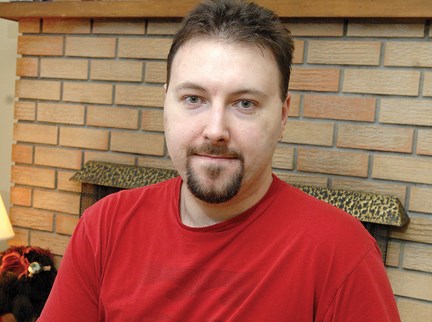Holly Hill's family believe that her case was at the centre of the investigation surrounding former Prince George oncologist Dr. Suresh Katakkar and they're shocked with the results.
"It makes me sad that [the BC Cancer Agency] is running his name through the mud, because it reads really badly that report," Holly's partner Sterling Roberts said Friday, the day after the cancer agency released a report saying Katakkar provided unacceptable treatment 10 per cent of the time. "It reads like he did something bad for patients, but he didn't. Ten per cent of his cases and non-standard and unacceptable care - but the non-standard is the big one, that's where he tried different things."
Katakkar resigned from the cancer agency last June, weeks after an investigation into his practice was launched based on the complaint of a co-worker. On Thursday the cancer agency concluded that the former chief medical oncologist in Prince George provided non-standard and unacceptable care to 54 patients. Eight of those cases could have involved serious patient harm and four cases had the potential to cause preventable, treatment related death.
In a brief email to the Citizen on Friday, Katakkar indicated that he has retained legal counsel.
"All I can say is I am innocent," he wrote.
A phone call and email to Katakkar's Vancouver-based lawyer weren't returned.
Katakkar was Holly Hill's doctor last year as the 33-year-old fought an aggressive form of colon cancer. She eventually died due to a blood infection in May, but Roberts said that only occurred after Katakkar did everything he could to try to save her.
That included making a vaccine out of Hill's own tissue to help ease the symptoms of the disease, including fluid build up in the stomach.
"It was never presented to us as a cure, it was meant as something that would help alleviate side effects," Roberts said.
Former Prince George-Peace River MP Jay Hill said Katakkar gave his daughter hope after the cancer agency all but wrote her off in January 2012, when Holly's cancer took a turn for the worse.
"The BC Cancer Agency turned their back on her and basically conveyed to her in one way or another that she was terminal, that it was just palliative care," he said. "We heard all sorts of comments from staff at the hospital at the time that this is a waste of time, and in hindsight perhaps it turned out to be. But for a young person, 33 years of age, that's dying, to have no hope is a terrible place to be and Dr. Katakkar gave her hope, as slim as it was. We all understood the huge odds against her."
Hill thinks the report was produced so officials at the cancer agency could protect themselves.
"They're worried about potential litigation and they're trying to cover their rear ends," he said.
Cancer agency president Dr. Max Coppes said confidentiality rules prevented him from saying if Holly Hill's case was indeed the one which precipitated the investigation, but he did say it started with a concern raised by a staff member.
Coppes said he's not aware of any patient or family member of a patient who made any complaints about the care they received from Katakkar.
Confidentially rules also kept Coppes from commenting if Holly' Hills care was deemed to be a serious or critical patient safety event or even if it was one the 54 deemed unaccpetable.
The family doesn't know which category Holly's case falls into either, but they are convinced that a complaint by a cancer agency employee sparked the probe.
"Her case is the one that pushed it over," Roberts said. "They say there were other concerns, but it was the report on the vaccine . . . that's was the straw that broke the camel's back."
Coppes said he sympathizes with Hill's family as well as others in the community who were sad to see Katakkar leave.
"It's very clear that somebody the community loved and trusted has been put in a light they had not expected," Coppes said.
He said his job is to ensure that cancer care in the province is appropriate and the agency has determined Katakkar didn't meet that standard.
"Regardless if people liked him or not, the fact of the matter is that in 10 per cent of the patients that he treated he provided what's considered unacceptable care," Coppes said.
Hill would like other families who lost loved ones under Katakkar's care to step forward and share their stories about the doctor, be they positive or negative. As more stories become public, he hopes a clearer picture will emerge.
"It's convenient that we don't know who the families are of the four people they refer to in this report," he said. "It's just a huge question mark hanging over the doctor."



